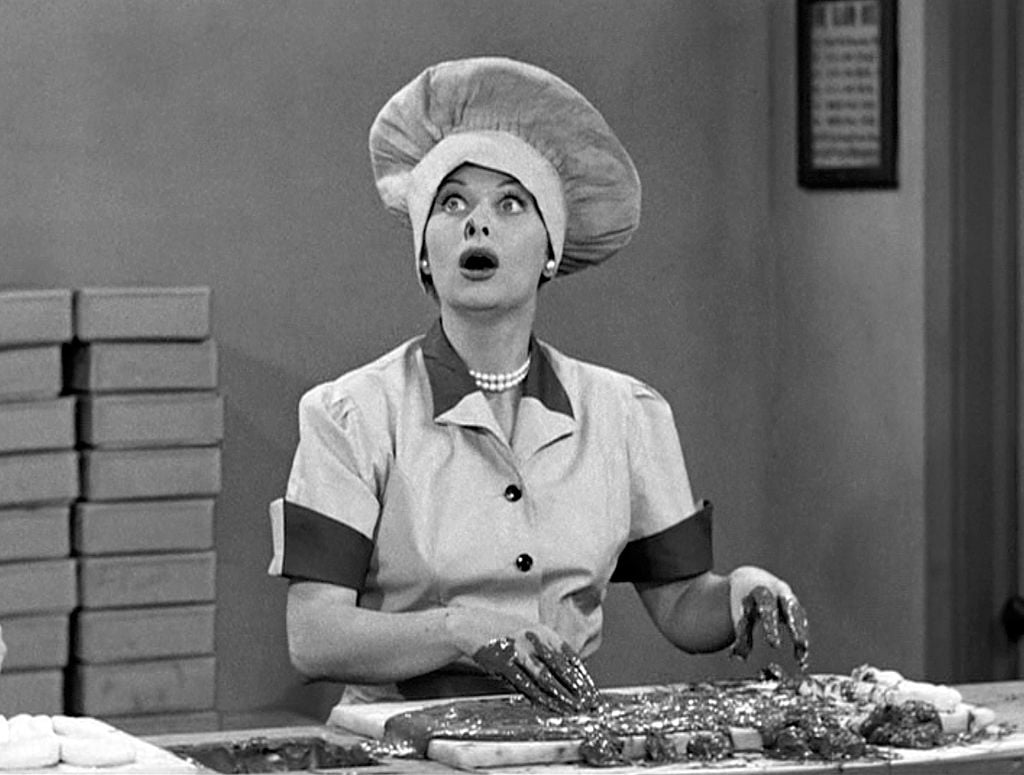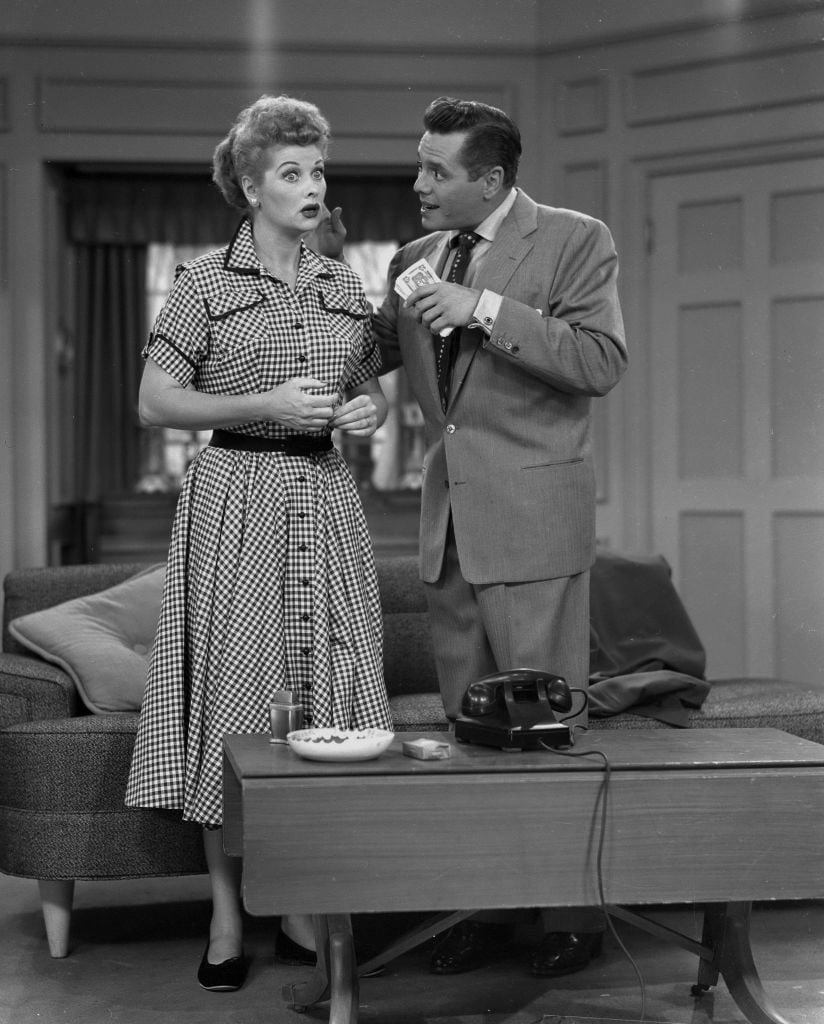‘I Love Lucy’ Was So Popular It Caused This Strange Phenomenon
I Love Lucy, which began airing in 1951 made its star Lucille Ball an icon of TV. The sitcom was so popular, in fact, that during the ad breaks during I Love Lucy, so many Americans were using the bathroom that it caused this wild phenomenon to occur nation-wide.
‘I Love Lucy’ lead cast member, Lucille Ball, was a ‘trailblazer’

Per The New York Times, thanks to I Love Lucy, “Lucille Ball was not only a superstar by 1960.”
“She was also a trailblazer, a female mogul,” the paper continued. As The Times explained, her dominance over the media industry was widespread:
Desilu Productions, the business empire she split with Desi Arnaz, her ex, owned the most TV-studio space and was ‘the single biggest filler of television time’ in the industry, as Life Magazine put it.
While the sitcom I Love Lucy is one of the most recognizable products in American television history, it’s easy to forget just how ubiquitous the show was in American culture at the time it aired.
“One measure of her popularity: The nation’s reservoirs dipped whenever I Love Lucy broke for a commercial,” The New York Times reported.
The huge effect on the water reservoirs was due to the fact that most viewers were using the ad breaks to go to the bathroom. Because they simply could not miss one second of Lucy and Ricky.
“A whole country, flushing as one,” the publication put it, quite poetically.
During the episodes, ‘I Love Lucy’ viewers timed their bathroom breaks with commercials
In the current age of TV, when every platform is making its own content and several people watch shows on their phones and laptops, it’s nearly impossible to imagine just how many people were all watching I Love Lucy — and hitting the toilet during commercials. But with fewer options on TV during the 50s — and the fact that Ball had a mega-hit on her hands — the impact was felt, even in the sewers.
Media Post seemed to confirm this theory. In a post commenting on the supposed “sudden revelation that consumers are skipping commercials,” they commented on how TV watchers missing out on ads goes decades back.
“… the phenomenon was first identified in the 1950s when water pressure dramatically dropped in St. Louis during commercial breaks in I Love Lucy,” Media Post reported.
What did Lucille Ball do after her popular TV show ended?
The New York Times also recently reported on one of Ball’s least successful ventures: the Broadway musical she starred in after I Love Lucy came to a close.

“I Love Lucy had just ended,” the publication explained. “Her marriage had too. The last kiss with Desi fell on the last moment of their last episode. His face in her hair; her blubbering through tears: “You’re supposed to say ‘Cut.’” The final clinch. The next day she filed for divorce.”
Afterwards, in a reportedly “tough spot,” Ball decided to follow through on a long-held dream: the theater. She chose a show called Wildcat and started rehearsals.
What was Ball’s new venture Wildcat all about? The Times:
The writer of Wildcat, N. Richard Nash, had conceived of it as a drama — the story of ‘a woman in dungarees’ who swings into a Southwestern oil town with dreams of striking it rich. … Wildcat ‘Wildy’ Jackson, ‘the cat with more bounce to the ounce,’ as [Ball] put it in her autobiography, was the kind of ‘rough-talking, and unbelievably energetic’ character she wanted to play.
However, the I Love Lucy star met her match with the Broadway show; the rehearsals were “grueling,” especially for someone who didn’t have much background in singing and dancing.
Still, Ball will always have one thing under her belt from her days on I Love Lucy: the power to affect an entire nations’ timing of their bathroom breaks.


